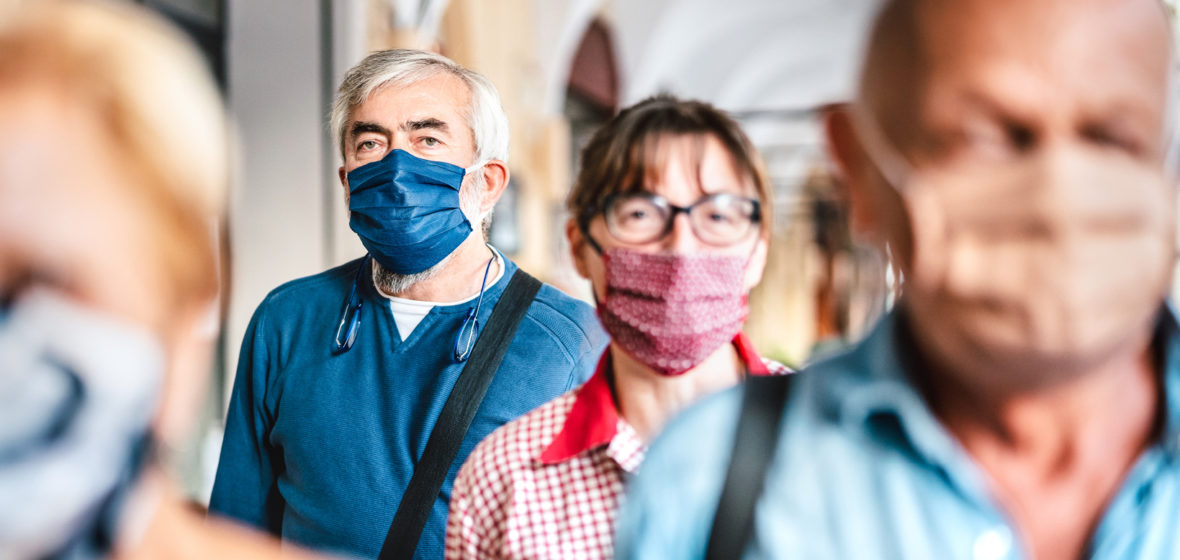Some anxiety about your health during the pandemic is normal and expected. But spending too much time focusing on how you’re feeling can be a sign of
unhealthy worry.
Freaking out that every fever, cough or runny nose is a symptom of the dreaded c-word? Spend hours doom scrolling possible signs of illness and find little reassurance from doctors’ visits? During the pandemic, being vigilant about your health is a sensible – and socially responsible – behaviour. But there’s a difference between paying attention to your health and taking reasonable precautions against catching COVID-19 and fretful preoccupation with disease.
Experts say, and research shows, the pandemic has sparked a rise in health anxiety, which is characterised by excessive worry that you are or may become seriously ill.
“People have been a lot more distressed and levels of health anxiety symptoms in the community are much higher,” says Professor Louise Sharp from the School of Psychology at the University of Sydney.
Dubbed “coronaphobia” in one recent study, the phenomenon can interfere with everyday life and have a serious impact on wellbeing.
Understanding health anxiety
The official name for health anxiety is “illness anxiety disorder”. It was onceknown as hypochondriasis and common symptoms include a preoccupation that minor symptoms mean you have a serious illness, being easily alarmed about your health status and repeatedly checking your body for signs of ill health.
There’s also a related condition called “somatic symptom disorder”, which involves an extreme focus on physical symptoms like pain and fatigue. “So, there are two types of health anxiety: one that presents with clear symptoms [somatic symptom disorder] and one where people worry about symptoms they don’t have [illness anxiety disorder],” explains Professor Sharp.
What’s happening in the brain when we experience health anxiety is much the same as other types of anxiety but with a focus on the body.
“It’s a predictable pattern – if we’re scared of something, we try and find a way to either run away from it or get rid of it,” says Dr Peter Baldwin, a clinical psychologist and clinical research fellow at the Black Dog Institute. “Because you can’t run away from or get rid of your body, we can get really focused on checking, constantly monitoring and trying to detect any kind of change in our physical status.”
Weighing up the risk
Personality traits like negativity and a tendency to be a worrier, as well as excessive health-related internet use, are common risk factors for health anxiety. Dr Grant Blashki, a GP and lead clinical advisor at Beyond Blue, says some traits common among legal professionals are also associated with the condition.
“As a GP, I’ve noticed very over-analytic, meticulous people are a little bit at risk for health anxiety because they get very worried about particular symptoms,” he says.
“If that’s overlaid with them doing their own research online, they can sometimes land at a completely wrong conclusion.”
The trouble with diagnosing health anxiety in a pandemic is that maintaining a higher degree of vigilance about your health than normal is often helpful because it can motivate you to adopt habits like wearing a mask and practising social distancing. But it also creates fertile ground for health anxiety.
Dr Blashki says three behaviours we’ve been encouraged – or even mandated – to adopt to help prevent COVID-19 can have the opposite effect on anxiety levels.
“We’ve all been told to monitor ourselves for respiratory and viral type symptoms, and get tested if we’ve got a sore throat, fever or body aches,” he says. “Many of us have been in lockdown with too much time to focus on ailments and physical symptoms. Plus, there’s been tremendous anxiety around vaccine side effects. All of these things probably make people a bit more anxious about their health.”
The trouble with diagnosing health anxiety in a pandemic is that maintaining a higher degree of vigilance about your health than normal is often helpful because it can motivate you to adopt habits like wearing a mask and practising social distancing. But it also creates fertile ground for health anxiety.
And the difficulty can compound if you’re in a high-risk group, says Professor Sharp. “If you are somebody who has a real vulnerability, it can be very difficult to know when your level of health anxiety is matching your level of risk.”
To figure out if your level of pandemic vigilance is appropriate or out of proportion to the risk and encroaching on health anxiety, Dr Baldwin suggests asking yourself: how much stress is it causing and what’s it getting in the way off?
“If you spend a lot of time worrying about your health, checking your symptoms and using Dr Google, it can be a sign of stress,” he says. “The second thing is the impairments in your life – if you’re not engaging in important relationships, if you’re unable to go to work, if you’ve given up things you really like.”
Taking the pressure off
According to the Black Dog Institute, studies from past pandemics show health anxiety is usually transient and resolves once the threat has passed.
“We might fixate on things that might not have worried us in the past, but that’s not necessarily a sign of mental illness,” says Dr Baldwin. “Really what it means is that we’re in a really, really unpredictable and uncontrollable situation, and our brain just turns on our threat radar.”
If anxiety about the pandemic is affecting your everyday life, Dr Baldwin says it can be helpful to try to reduce checking behaviours like monitoring your temperature and taking your pulse. See if you can wait three, five or even 10 minutes after you feel the urge to check before engaging in the behaviour, and slowly increase the time. “This can be a slow and sustainable way to erode those behaviours,” he says.
Professor Sharp recommends developing habits that “mitigate your risk but don’t negatively interfere with your life” like wearing a mask and maintaining social distancing to shift your focus away from monitoring your health and allow you to move forward, especially as the country gradually opens up.
Seeing your GP – in person or via telehealth – if you’re particularly concerned about your wellbeing is another simple strategy.
“GPs are the very best people to assess [health anxiety] because we bring both the physical and psychological perspectives,” says Dr Blashki. “We often have a long-term knowledge of your personality, which really helps.”
For more serious health anxiety, the best evidence-based treatment is cognitive behavioural therapy (CBT), which helps to change the way we think and behave. It’s delivered by psychologists, through a referral from your GP, as well as in online courses like This Way Up, an initiative of St Vincent’s Hospital and the University of New South Wales, and Macquarie University’s MindSpot.




